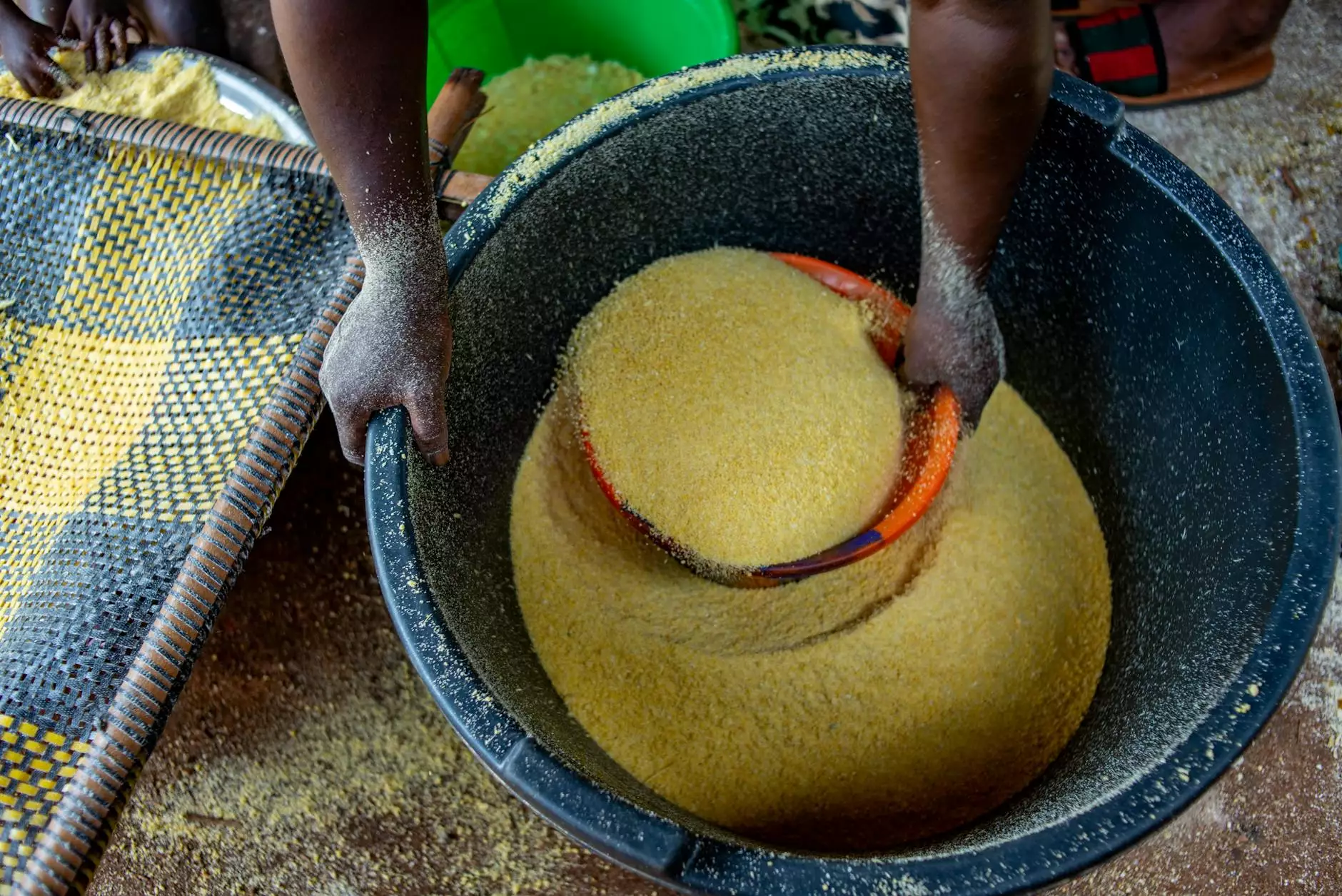Does Cornmeal Help Control Weeds? A Comprehensive Guide

As the pursuit of sustainable and organic gardening practices continues to gain momentum, many gardeners are on the lookout for effective, natural solutions to common gardening challenges, including the persistent problem of weeds. One such potential solution that has garnered attention is cornmeal. In this extensive article, we will explore the question, does cornmeal help control weeds? We will delve into scientific insights, practical tips, and personal experiences to provide a thorough understanding of cornmeal as a weed management strategy.
Understanding Weeds and Their Impact on Gardens
Weeds are often considered one of the most significant challenges gardeners face. These unwanted plants compete with your cherished flowers and vegetables for resources such as water, nutrients, and sunlight. Moreover, they can harbor pests and diseases that may affect your garden's overall health. Traditional weed control methods often involve the use of chemical herbicides, which can have detrimental effects on the environment and human health.
What Is Cornmeal?
Cornmeal is a flour made from ground corn. It is commonly used in culinary applications to prepare various dishes, from cornbread to pancakes. However, cornmeal has also been recognized for its potential benefits in gardening, particularly in weed management. Its natural properties make it an appealing alternative for those looking to maintain an organic garden.
The Science Behind Cornmeal and Weed Control
One of the key reasons why gardeners wonder if cornmeal helps control weeds stems from its composition. Cornmeal contains a substance called corn gluten meal (CGM), which has herbicidal properties that can inhibit the growth of certain weed seeds. When applied to garden soil, CGM can help prevent weeds from germinating without harming established plants.
How Cornmeal Works as a Natural Herbicide
To understand how cornmeal can be an effective weed management tool, it's essential to look at its interaction with the soil and weed seeds. Here’s a breakdown of the process:
- Pre-emergent Herbicide: Cornmeal acts as a pre-emergent herbicide, meaning it is most effective at preventing weed seeds from germinating. For best results, it should be applied to the soil before the weeds start to sprout.
- Inhibition of Seed Germination: The compounds in cornmeal disrupt the germination process of many common weeds. When these compounds are present in the soil, they create an environment less hospitable for weed seedlings.
- Safety for Established Plants: One of the significant advantages of cornmeal is that it primarily targets young weed seeds, posing little to no threat to mature plants. This makes it an excellent choice for organic gardeners who want to protect their crops.
Benefits of Using Cornmeal in Your Garden
Using cornmeal for weed control comes with a plethora of benefits, including:
- Organic and Safe: As a natural product, cornmeal poses no risks to the environment or your health, making it an ideal choice for organic gardening.
- Non-toxic: Unlike many chemical herbicides, cornmeal is non-toxic to humans and pets.
- Soil Health: Cornmeal can contribute to improved soil fertility as it decomposes, adding organic matter to your garden.
- Cost-effective: Cornmeal is generally inexpensive and readily available, making it an economical option for weed control.
How to Use Cornmeal for Weed Control
Now that we understand the effectiveness of cornmeal in controlling weeds, let's discuss how to use it effectively in your garden:
1. Choose the Right Type of Cornmeal
It’s important to select corn gluten meal, which is specifically produced as a pre-emergent herbicide. Regular cornmeal may not have the same herbicidal properties, so make sure you get the right kind.
2. Timing is Key
For optimal results, apply cornmeal to your garden in early spring, just before the weeds are set to germinate. This timing allows cornmeal to interact with the soil and prevent weed seeds from sprouting.
3. Application Method
Follow these steps for application:
- Evenly spread cornmeal across the garden bed at a rate of 20 pounds per 1,000 square feet.
- Rake the soil lightly to incorporate the cornmeal into the upper layer of soil.
- Water the area to activate the herbicidal properties of cornmeal.
4. Follow-Up Care
Monitor your garden regularly for any signs of weeds and reapply cornmeal as needed, typically every 4 to 6 weeks throughout the growing season.
Success Stories: Real Gardeners Share Their Experiences
Many gardeners have reported positive experiences using cornmeal for weed control. Here are a few testimonials:
Emily from Ontario
“I had a persistent problem with crabgrass in my vegetable garden. After applying corn gluten meal, I noticed a significant decrease in weed growth, and my plants thrived without any chemical exposure.”
James from Alberta
“Using cornmeal was a game changer for my organic garden. I appreciate how it not only kept the weeds at bay but also improved the soil quality over time.”
Limitations and Considerations
While cornmeal is an effective natural herbicide, there are some limitations and considerations to keep in mind:
- Not a Total Solution: Cornmeal is best used as part of an integrated weed management strategy, rather than a standalone solution.
- Effect on Desired Seeds: Be cautious when planting seeds in areas treated with cornmeal, as it may inhibit the germination of some garden seeds.
- Weed Resistance: Over time, some weeds may develop resistance to natural herbicides; therefore, it’s essential to rotate weed control strategies.
Conclusion: Embrace the Power of Cornmeal in Weed Management
In summary, the question, does cornmeal help control weeds, can be answered with a resounding “Yes!” Cornmeal, particularly in the form of corn gluten meal, offers a promising, organic solution to one of the most stubborn problems in gardening. With its potential to inhibit weed seed germination, improve soil health, and protect the environment, cornmeal proves to be a valuable tool for anyone serious about organic gardening.
As you explore the world of gardening and natural weed control, consider incorporating cornmeal into your practices. With proper application and care, you can cultivate a thriving garden that is not only productive but also ecologically responsible. Happy gardening!



